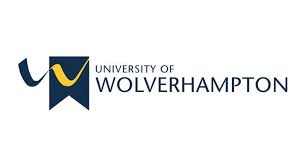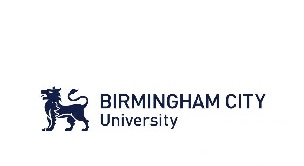Schrödinger's Dreadlocks
Date posted: 16/01/2023

Somebody once asked me - what is the hardest thing about being an ethnic minority? For me, it was an easy one - people treating you differently because of your race. No, not the security guards that follow me around Asda, or the people that cross the street when they see me coming. It is the compliments that keep me up at night. Do people see me as a good scientific presenter in general, or do people see me as a good presenter for a working-class brown boy with dreadlocks? Am I one of the few lucky ones to get PhD funding because of my skill and hard work, or was I filling somebody’s diversity quota? For me, that self-doubt is an incredibly hard thing to overcome and takes some of the joy out of my accomplishments.
Am I being a bit pessimistic?
Well, this is my 7th year in higher education and I have yet to see an academic in my field that looks like me. The University of Wolverhampton is my 10th place of employment and Loreal (That’s Me! Project Manager) is the first non-white manager I have ever had. Yvonne (Employment Engagement Officer) and Tanya (Community of Practice Coordinator) are the first black women I have ever had the pleasure of working with. I did not even have a friend that looked like me until I was 14 years old. Olivia and I have now been in a relationship for 11 years and it all started because we shared common experiences and difficulties! However, the lack of representation throughout my work and university life is incredibly demotivating and quite unacceptable.
So, what do I do with my frustrations? I smile and swallow them in order to fit in and keep the peace of course. With all these things to consider, can anybody blame me for the self-doubt? If only there was a safe space to vent these frustrations to others that share my experience. If only there were people to make a change so that in the future, I can see people from the global majority in positions of seniority and say “Hey! That’s Me!” ……
Of course, I am not so subtly referring to the That’s me! Project. Meeting the team for the first time in January early this year was eye-opening to me. For the first time in my career, I was working with people that looked like me and could relate to the experiences and worries that I have. The team is passionate, authentic and motivated to not only eliminating barriers to global majority doctoral students but providing a space in which we can have a community of like-minded people.
My first day on the project involved me attending a That’s me! workshop. The first thing that blew my mind were people sharing their unfiltered opinions and experiences. I have always been so reluctant to talk about race problems, ironically, not wanting to offend the people that have offended me. However, in the workshop, people were speaking freely and once one person came forward and addressed their concerns, others gained confidence and followed suit. Watching people bond through their pain and struggles within research was very emotional and upsetting but at the same time – it gave me hope. All I have ever known is to internalise these feelings and try to deal with them myself. The that’s me project is my first experience of people coming together to help each other through problems in their research.
For me, the project has already done something that nothing else has done before. It has enabled me to talk about my problems and feel like I am being heard. My suggestions and discussions provide the foundations for change in the hope that those that come after us may have a better research experience. This is not me speaking as a team member, this is me speaking as a student. Most of the things we discuss and think about is what you guys, as researchers, tell us in the workshops. The that’s me project is nothing without your ideas and stories. The team is working on a number of reports to investigate pathways and barriers into research amongst other ideas to make it easier for global majority doctoral researchers to pursue opportunities. The project is both talk AND action and in my short time on the project I have seen how important both things are.
I am also excited to see what more the project has to offer. There are always interesting conversations to be had or ideas and solutions flying around the meeting room and hopefully, some of these can be put into place soon. The project is just the first step in providing better access to research degrees and the careers that come with them for global majority doctoral researchers. There may be very few people we can look up to now as role models but WE are the role models for the aspiring researchers of the future. I want people to look at the working-class brown boy with dreadlocks and say “Hey, That’s Me!”.


This work is supported by Office for Students and Research England under the improving access to and participation in postgraduate research study (PGR) for Black, Asian and minority ethnic students funding stream